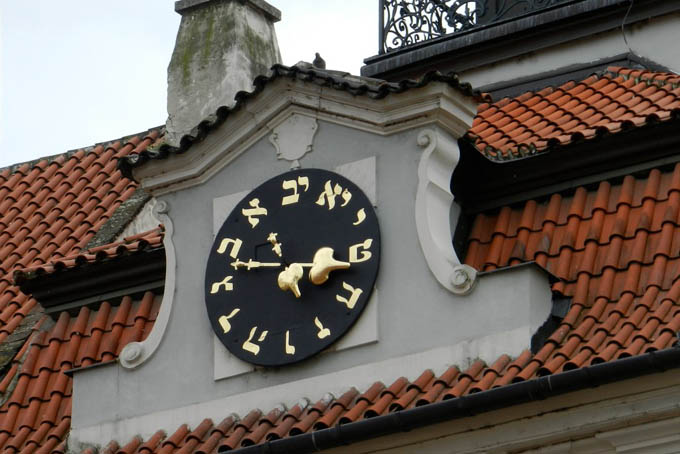Prague is known for some of the most beautiful and varied synagogues of Europe, taking us to so many cultural journeys marked, from the Golem’s genizah to Kafka’s Journals. Here’s our interview with Pavla Niklová, Director of the Jewish museum in Prague, about the upcoming events organized and the evolution of interest in Jewish heritage since last year.

Jguideeurope: Have you perceived an evolution in the interest related to Prague’s Jewish culture?
Pavla Niklová: We can state a constant interest in Jewish culture in Prague. A number of organizations and events that take place regularly, but unique one-off events contribute to this. In the forefront is the Jewish Museum in Prague and its activities. Its exhibitions are held in several synagogues and the old Jewish cemetery, and it is one of the most visited museums in the Czech Republic. Part of the exhibitions is also the Robert Guttmann Gallery, which offers space for temporary exhibitions, currently for example The Samsa Enigma exhibition by Oded Ezer. The Jewish Museum in Prague offers a number of other activities that increase public interest, which are described in detail in the Kafka100 activities (https://kafka100.cz/).
The Kafka anniversary is related to dozens of other events, which take place in Prague (for example, we will mention discussions in the Václav Havel Library) and all over the world, contributing to an increase of interest in Jewish culture.
Are there projects organized with local schools to share the Czech Jewish heritage?
The Jewish Museum in Prague has its own educational department, which organizes many activities for Czech schools. The department organizes workshops, seminars and lectures for both students and teachers from local schools. Topics relate to Jewish traditions and customs, the Holocaust, but also focus on preventive programs against anti-Semitism. The programs also comprise guided tours of the Jewish Museum exhibits, including a tour of the Jewish cemetery. In this way, students get to know the history of the local Jewish community. The Jewish Museum also participates in long-term projects, such as the Neighbors who Disappeared or the Krokus project.
The first mentioned project encourages students to process the stories of children who lived near them during the Holocaust, or even attended their school. In this way, students learn about the fates of their persecuted classmates who lived here before them.
The Krokus project, in cooperation with the Irish organization HETI, will provide schools with yellow crocus bulbs. Schools will plant them in the fall and when they bloom in January, the students will remember the memory of the victims of the Holocaust in this way, while the day we remember this falls on January 27.
Which cultural events are you organizing in 2024-5?
September
- The 30th anniversary of the museum’s de-nationalisation is September 15.
- 18 September: presentation of the book Prague and Beyond: Jews in the Bohemian Lands by Kateřina Čapková and Co., held in aj., interpreted into Czech.
October
- 9 October: amateur theatre SUD: Tragicomic Play.
- 14 October: Karolina Szymaniak (Department of Jewish Studies at the University of Wroclaw) – Women Writers in Yiddish Literature
- 21 October: presentation of a book by Jindřich Toman on 19th century Jews (2nd half of the month – God’s Bottle)
- HAMU: concert by Ensemble Terrible in the Maisel Synagogue, October 31
- Book presentation: Alena Machoninova: Hella?
November
- Terezín Cabaret: Mr. Prokeš
- Meeting with Vera Maiselová, a survivor who is also a poet and writer.
- DAMU, in cooperation with Václav Havel Library and Jewish Musem in Prague, announced the 9th annual competition for a short play on the theme: I started thinking about my case. But the problem was that I didn’t really know anything about it except the basic fact that they had decided to arrest me. The winning text will be staged at the Maisel Synagogue.
- Reviving Kafka’s texts with Marcin Gokieli, in cooperation with the Centre for Yiddish Culture in Warsaw, in English.
December
- A search for Franz Kafka’s forgotten relationship with Julia Wohryzkova, after which only the so-called pipe-mail stickers remain. Documentary reconstruction of one acquisition of the Literary Archive of the National Literature Memorial, Kino Edison
- Concert of Sephardic Songs: Eliška Tesařová
January 2025
- Cooperation with Dominikanska 8: Places of Memory (Lety, Terezín)
- Performance of “And the sky hurt” by Disman Radio Children’s Ensemble